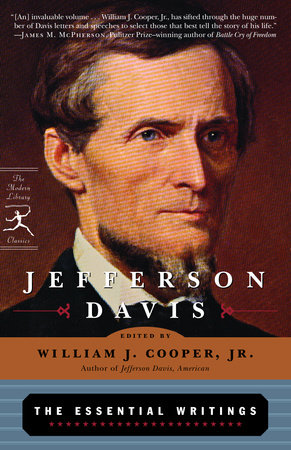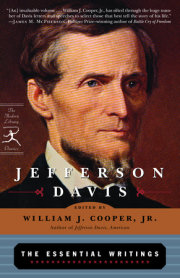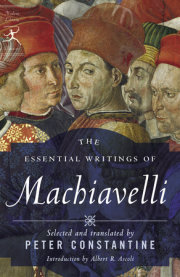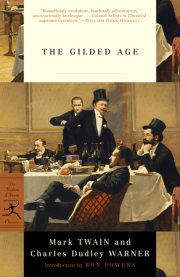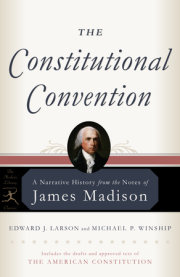INTRODUCTION
JEFFERSON DAVIS: HIS LIFE AND RECORD
William J. Cooper, Jr.
I
Jefferson Davis is a major figure in American history whose principal importance stems from his role in the central event in the country’s history, the Civil War.1 As president of the Confederate States of America, Davis directed the new nation’s mighty struggle for independence. That massive effort failed. In four years of bloody warfare that claimed more than 600,000 American lives, the United States smashed the Confederate States. Even though Davis and his cause failed, the vastness of the war and the profound consequences resulting from it ensure its primacy and his prominence.
Yet Davis’s notability does not come solely from his crucial role in the Civil War. Born on the Kentucky frontier in the first decade of the nineteenth century, he witnessed and participated in the epochal transformation of the United States from a fledgling country to a strong nation spanning the continent. In his earliest years his father moved farther south and west to Mississippi. As a young army officer just out of West Point, he served on the northwestern and southwestern frontiers in an army whose chief mission was to protect settlers surging westward. Then, in 1846 and 1847, as colonel of the First Mississippi Regiment, he fought in the Mexican War, which resulted in 1848 in the Mexican Cession, a massive addition to the United States of some 500,000 square miles, including California and the modern Southwest. As secretary of war and U.S. senator in the 1850s, he advocated government support for the building of a transcontinental railroad that he believed essential to bind the nation from ocean to ocean.
Davis cherished a vibrant United States. Not only did he participate in events that charted the country’s growth, he shared in the sense of inevitable growth and progress that dominated the national outlook. The agricultural and industrial boom of the 1850s, along with the Mexican Cession, exemplified the inexorable march toward greater wealth and power in the United States.
Certain about America, Davis also had confidence in himself and in his ability to overcome any obstacle. Moreover, his own ambition matched the ambition he had for his country. From young manhood he struggled with a wide range of serious physical illnesses, but he never let their assaults on his body deter him from his course. He also knew deep sadness in his personal life, yet he never permitted that heavy veil to smother him with self-pity. He wanted to succeed, and he did. He became a successful planter, a war hero, and an influential politician whose career carried him into the highest councils of his country. Men spoke seriously about his becoming president.
As Davis witnessed the physical and economic development of his country, he envisioned no conflict between this progress and racial slavery. Growing up in a slave society, he accepted servitude as normal, as moral, and as American. His father was a small slaveholder who worked in the fields alongside his bondspeople. With the aid of his oldest brother Joseph, Jefferson Davis attained a social and economic status his father never did—great planter. Beginning with the one slave he inherited from his father, Davis in 1860 owned 113 slaves, who toiled on his cotton plantation, Brierfield, in Warren County, Mississippi. His personal history paralleled that of his country and state. In the United States between 1800 and 1860 the slave population more than quadrupled to over four million. In Davis’s Mississippi cotton raised chiefly with slave labor brought wealth to both Davis and his state. The crop more than doubled in the last antebellum decade, with its value increasing to more than five million dollars.
In his public life Davis defended slavery as moral and as American while maintaining that the institution helped civilize and Christianize an inferior race. Although not all Americans joined his embrace of slavery, few dissented from his belief in the supremacy of the white race, an outlook shared in the nineteenth century by almost all white Americans and Western Europeans. Slave labor, he believed, could flourish in many venues, such as factories and mines, not just in cotton fields. As an owner of slaves, he wanted protection of slavery in his own interest. As a politician representing tens of thousands of slave owners and tens of thousands of aspiring slave owners, he deemed guarding slavery his duty.
When geographic expansion led to conflict over slavery in the territories, he insisted on the rights of slave owners as Americans to participate equally in the national bounty. He also feared where the energy of antislavery might lead, for he defined it chiefly as a political force—the North striving to wrest power from the South. Yet he was willing to compromise; he even advocated a division of the western territories following the example of the Missouri Compromise of 1820, which divided the Louisiana Purchase into an area where slavery would be prohibited and another where the institution would be permitted. Still, he refused to accept a complete prohibition. He was convinced that a substantial segment of northern opinion was prepared to honor what he considered the constitutional rights of the South.
In Davis’s judgment the Constitution absolutely guaranteed protection and equal rights for the South and slavery. He always identified himself as a constitutional patriot and a biological as well as an ideological son of the American Revolution and the Founding Fathers. He was especially proud that his own father had fought for the patriot cause against England. Professing the United States a nation created by the sovereign states that upheld it, he looked to Thomas Jefferson, James Madison, and John C. Calhoun as the great explicators of states’ rights and strict construction, of the proper understanding of the nation and the Constitution. In Davis’s mind a continuum stretching over the decades connected these constitutional statesmen with their disciples of his time.
Davis rejected any notion of a contradiction between slavery and America. So many of the great national heroes who had won and preserved the independence of the nation and led its battalions against foreign foes were slaveholders—men such as George Washington, Thomas Jefferson, James Madison, Andrew Jackson, and Zachary Taylor. Furthermore, his view that the Constitution protected slavery was not at all unique. Most white Americans, Northerners included, shared that interpretation, and the U.S. Supreme Court emphatically sustained it. Davis dismissed as un-American the proposition propounded in the 1850s by the Republican party that the United States could not persist, in Abraham Lincoln’s words, “permanently half slave and half free.” A solid majority of Davis’s fellow citizens concurred with his belief that slavery and freedom could continue to coexist, as they had since the birth of the nation. In the 1860 presidential election 60 percent of the voters cast their ballots for candidates who found no fundamental problem with slavery in America. The Republican Lincoln captured barely 40 percent of the popular vote, though, of course, he had an indisputable majority in the Electoral College.
Lincoln’s election as president brought on the crisis of the Union, a Union Davis still prized. Although he had always preached the constitutionality of secession, he never advocated its implementation, not even in 1860. He still believed that significant Northern support for Southern rights remained, and he had no doubts about the guarantees in the Constitution. But powerful political currents gripped all—Northerners, Southerners, Democrats, Republicans. Compromise proved impossible. For Davis there was no question about his course. Secession was constitutional, and his loyalty to Mississippi underlay his allegiance to the United States. He left the Union with his state.
For Davis the Confederate States provided a way to save the America he had cherished. For him the Confederacy became the true descendant of the American Revolution and the Constitution. Preserving that sacred heritage made the Confederacy a holy cause. It must prevail, and Davis would adopt whatever measures he thought necessary to achieve victory, including the first national conscription law in American history. He contended that the Confederacy alone defended liberty. That guarding this precious liberty also involved sanctioning slavery posed him no problem. To Davis, as to most white southerners, their liberty had since the American Revolution always included their right to own slaves and their right to decide about the institution without outside interference. White liberty and black slavery were inextricably intertwined.
Davis committed himself utterly to the Confederacy and directed a titanic war on its behalf. His commitment to his cause was as total as that of his great antagonist on the other side. Neither he nor Lincoln would relent. To save the Confederacy, Davis even led his fellow Confederates toward an abandonment of slavery, chiefly by supporting the use of slaves as soldiers. Despite a mighty effort, the Confederacy was overwhelmed. Davis lost the war, but he clung to his cause.
Defeated, he could no longer wield a sword, yet he retained influence in the postwar years. His imprisonment between 1865 and 1867 endeared him to former Confederates, who saw him as suffering for their sake. In a fundamental sense he became the embodiment of the Lost Cause, an essential theme in the history of the South after 1865. Even more important, Davis articulated the outlook of the white South that shaped southern and national history from the 1870s to well into the twentieth century.
Although Davis accepted that the war had ended slavery, he did not alter his basic position on race relations. And he cheered the collapse of Reconstruction, which meant in part that northern whites came to the position southern whites had never relinquished: blacks remained inferior to whites, and their fortunes should be controlled by the superior race. Because more than 90 percent of black Americans still lived in the former slave states, those in control would be southern whites.
Davis also never backed away from his contention that secession was constitutional, and he insisted in the 1870s and 1880s that the Civil War was solely about states’ rights and the Constitution, not about slavery. In addition, he preached the nobility of the Confederate cause. His views, which he never recanted, were enshrined in his Rise and Fall of the Confederate Government, which was published in 1881.
But Jefferson Davis was not mired in the past. Although he continued to maintain the constitutionality of secession, he said that it had now become part of history. According to him, it had been tried, had failed, and would not be attempted again; he certainly would not advocate it. In the last decade of his life he became more positive about the future. He spoke proudly about the grandeur of the United States, its growing wealth and power. He saw the future of his beloved South in its young people. He urged them to hold dear their Confederate heritage but not let the past entrap them. As for himself, Davis looked back with pride on the past and on his part in what had been. At the same time, he looked ahead with the anticipation of his youth. At the end he gloried in what he saw as a permanently reunited United States.
Copyright © 2004 by Edited by William J. Cooper, Jr.. All rights reserved. No part of this excerpt may be reproduced or reprinted without permission in writing from the publisher.

